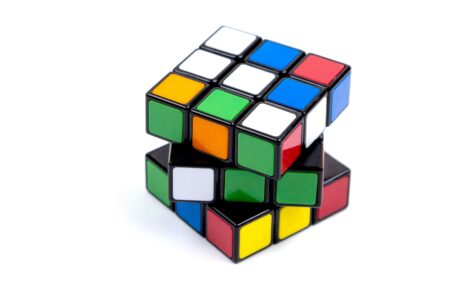This year is the fiftieth anniversary of the Rubik’s cube, created by Hungarian inventor Ernő Rubik in 1974.
Millions of cubes were sold worldwide until the early 1980s, when interest waned.
In the early 2000s, growth of the internet, cube enthusiasts started comparing their times for solving the puzzle in an online community hosted by Yahoo called “Speedsolving Rubik’s Cube Group.”
In 2004 the rules were standardised by the World Cube Association (WCA), a nonprofit co-founded by Ron van Bruchem, a Dutch IT worker who says he coined the term “speed cubing.”
The WCA organises hundreds of events annually around the world with volunteers and low competitor fees. In 2023, more than 60,000 cubers participated in at least one competition.
“You have to organize competitions. That’s the most important thing,” van Bruchem says. His competitions are low budget, because the experience is more important than any other element.
Sam Susz of Spin Master, the Canadian toy company that acquired Rubik’s Cube in 2020 for $50 million, believes there’s the potential for a World Cup or an Olympics exhibition.
Susz says that head-to-head competitions, rather than time trials, could attract viewers.
TheCubicle sponsors the Monkey League, pitting top speed cubers against each other by invitation only.
Max Park, a 22-year-old American, is the 2023 world record holder; he solved a cube in 3.13 seconds.
The cubes themselves are becoming more technically advanced. In 2017 internal magnets were used to help complete the turn and lock the layer into place.
Sponsorships are looming. Park has already done a commercial and partnered with a sports-drink brand.
[Photo: by Volodymyr Hryshchenko on Unsplash]

